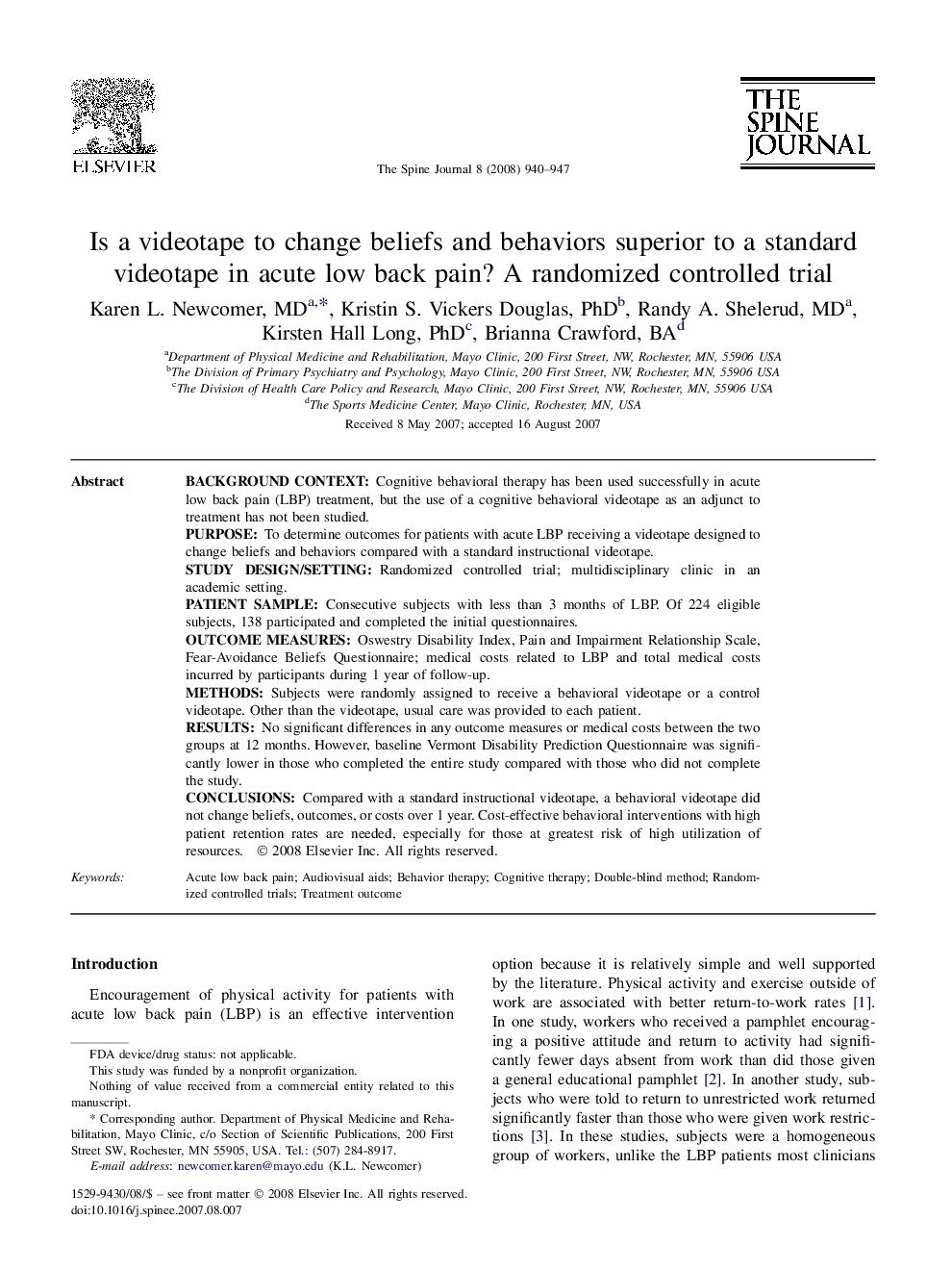| Article ID | Journal | Published Year | Pages | File Type |
|---|---|---|---|---|
| 4099820 | The Spine Journal | 2008 | 8 Pages |
Background contextCognitive behavioral therapy has been used successfully in acute low back pain (LBP) treatment, but the use of a cognitive behavioral videotape as an adjunct to treatment has not been studied.PurposeTo determine outcomes for patients with acute LBP receiving a videotape designed to change beliefs and behaviors compared with a standard instructional videotape.Study design/settingRandomized controlled trial; multidisciplinary clinic in an academic setting.Patient sampleConsecutive subjects with less than 3 months of LBP. Of 224 eligible subjects, 138 participated and completed the initial questionnaires.Outcome measuresOswestry Disability Index, Pain and Impairment Relationship Scale, Fear-Avoidance Beliefs Questionnaire; medical costs related to LBP and total medical costs incurred by participants during 1 year of follow-up.MethodsSubjects were randomly assigned to receive a behavioral videotape or a control videotape. Other than the videotape, usual care was provided to each patient.ResultsNo significant differences in any outcome measures or medical costs between the two groups at 12 months. However, baseline Vermont Disability Prediction Questionnaire was significantly lower in those who completed the entire study compared with those who did not complete the study.ConclusionsCompared with a standard instructional videotape, a behavioral videotape did not change beliefs, outcomes, or costs over 1 year. Cost-effective behavioral interventions with high patient retention rates are needed, especially for those at greatest risk of high utilization of resources.
